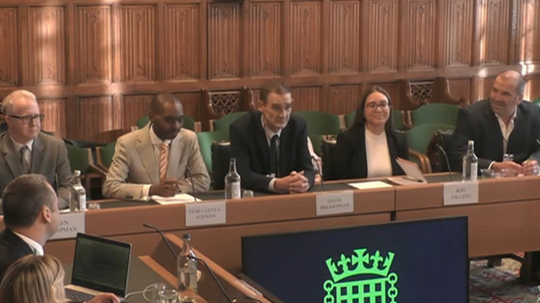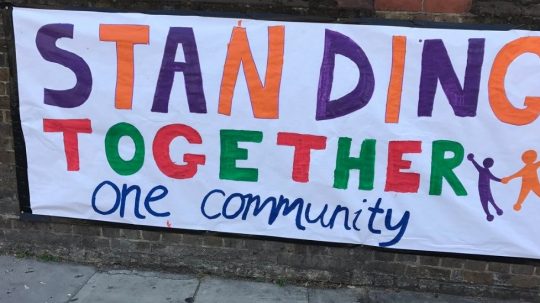In 2022, the Criminal Bar Association voted to undertake industrial action, bringing the dire state of much of the criminal justice system into the public eye. Following successive cuts by the government, among the issues were unusable court buildings, including broken toilets, leaking ceilings and malfunctioning heating systems, and the dismal remuneration received by barristers – barristers who are tasked with working on the most serious cases across the Crown Courts.
But beneath the Crown Courts are the magistrates courts, where the majority of crimes are tried and where all accused people have their first hearing. The magistrates courts are in a similarly dire state.
In fact, the state of them actively mocks the term ‘justice’: to have what might be the most serious day of your life hosted in a dilapidated building where you’re unable to use the toilet, or unable to have a conference in private because the rooms are out of order or in too short supply, is utterly scandalous for any country, let alone one that prides itself on a fair and transparent justice system.
The scandal doesn’t end there. It is no secret that in the magistrates courts, cases are primarily presided over by volunteers from the community who are not required to hold any legal qualifications, with legal advice being provided by a Justices’ Legal Adviser. Although there is a qualifying assessment, the volunteers do not take an exam prior to entry. Instead, once appointed, magistrates – the people who are then given the power to decide whether or not you are innocent (not guilty) or guilty – undertake “about three and a half days’ worth of training”, according to the Magistrates Association, plus around six hours every three years.
But Magistrates don’t only determine guilt, Magistrates also have the power to send people to prison, with the maximum sentence being six months’ imprisonment; however, on 2 May 2022, former justice secretary Dominic Raab deemed it appropriate to raise that to 12 months in an attempt to tackle the backlog of over 60,000 cases.
Raab’s proposal was, understandably, met with criticism, given that there were concerns that extending magistrates’ powers would doubly worsen the backlog by (i) opening the door to more appeals; and (ii) encouraging people to opt for a Crown Court trial to avoid being sentenced by magistrates in the first instance.
It was not only the backlog that was in issue. It was also the fact that the government was willing to allocate more power to magistrates, without any proposed change in training. In other words, the government was content for magistrates, after less than four days of training, to be able to sentence somebody to a year’s imprisonment.
By 30 March 2023, the powers had been reduced back to six months following a government announcement. No government commentary accompanied the announcement; there was no publication of the data associated with the change or measure of its impact. Instead, it came in silence as a single, expected paragraph. It was hard not to say, I told you so.
Even more worrying, perhaps, was what came in a statement by the Magistrates Association that expressed their disappointment at these powers being paused. It also stated that they would be “urging the government to restore magistrates’ extended powers as soon as possible”, and that “to not do so would further erode magistrates’ already low morale and may well result in resignations”.
Magistrates tend to not represent the people they sentence
Prison is not an abstract word to be used for powerplay. It is a real, physical thing that deprives people of not only their liberty, but their family, home and their job.
UK prisons are overcrowded, dirty and unfit for purpose. In a recent lecture, Sir John Major highlighted that inmates are often held in conditions worse than in Victorian times.
Unfortunately, these considerations may not be ones magistrates take into account, as members of the public without legal qualifications; most will never have seen the inside of a prison.
Put simply: magistrates do not always represent the people they sentence in terms of demographics. In some ways, that comes as no surprise; as of 1 April 2022, a mere 14% of magistrates identified as ethnic minority, and 79% were over 50, with 44% being over 60.
This means they will not always have a grasp of the issues that are faced by many ordinary people and they, for the most part, will not fully understand the significance of the sentences they impose.
Sustained change is needed
In April 2022, a former magistrate and Conservative politician, Andrew Edwards, was accused of racism after a clip emerged of a man saying, “I think all white men should have a black man as a slave or a black woman as a slave, you know.” Edwards referred himself to the Public Services ombudsman but did not confirm or deny the allegation. While this is an extreme example (and whatever the outcome), it goes to show that there are not stringent enough vetting and safeguarding processes in the recruitment of magistrates. That someone holding those views could have the power to send a black person to prison is repugnant.
If the magistrates system is to improve, serious and sustained changes are needed. At a minimum, all proposed magistrates should undergo rigorous training, which is continuous rather than contained.
There should be clear assessments of magistrates’ decisions in the first year that they are in post and a supervisory body that oversees magistrates, and all magistrates should be made to visit a prison as part of their induction. Without such changes, it is inevitable that miscarriages of justice will continue to stem from the very places that were built to uphold it.
The views expressed in this article are those of the author and do not necessarily reflect the views of EachOther.
About ‘The Inspired Source’ Series
This series is part of our work to amplify the voices of aspiring writers that are underrepresented in the media and marginalised by society. Each piece examines a human rights issue by which the author or their community is affected. Where possible, authors outline a position on how we might begin to address the issue. Find out more about the series and how to send us a pitch on this page.






